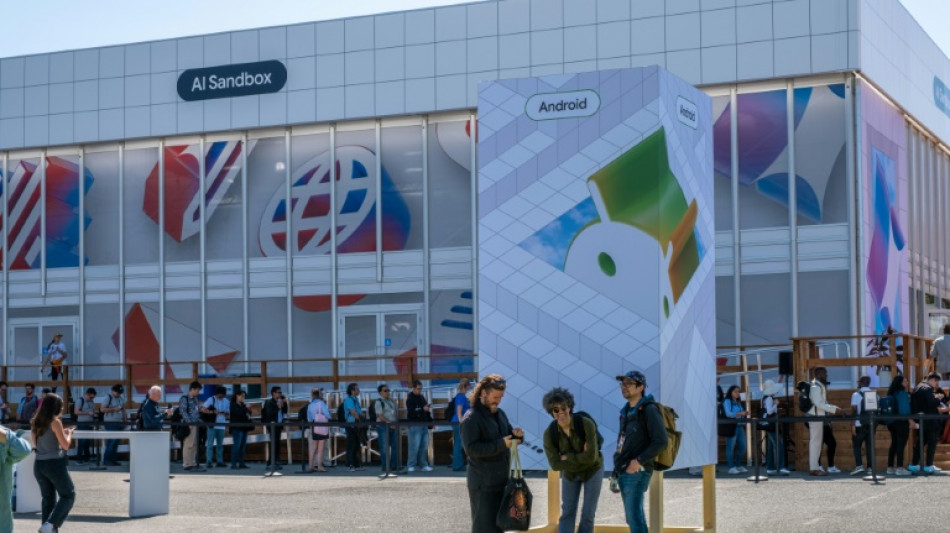

Ads pressured to evolve as AI changes Google search
As Google races to lead in artificial intelligence, it faces the challenge of making sure the technology doesn't slow its profit-pumping advertising engine.
The internet giant is dabbling with ads in its new AI Mode for online search, a strategic move to fend off competition from ChatGPT while adapting its advertising business for an AI age.
"There's no question that AI is becoming more commonplace as a source for answers," IDC advertising and marketing technology research director Roger Beharry Lall told AFP.
"That will inevitably result in a shift in terms of search and the opportunities to promote a brand."
The integration of advertising has been a key question accompanying the rise of generative AI chatbots, which have largely avoided interrupting the user experience with marketing messages.
However, advertising remains Google's financial bedrock, accounting for more than two-thirds of its revenue.
"Google certainly needs to find a way to monetize AI search in the way that it has monetized its past versions of search," Techsponential analyst Avi Greengart told AFP at the tech giant's annual developers conference this week.
- AI-fueled ads -
A new AI Mode enables conversational interaction with Google during search queries, providing answers in diverse formats, such as video, audio or graphs.
The internet giant said it is testing integrating ads into AI Mode responses, building on insights gained from AI-generated summaries, or "Overviews," introduced to search results a year ago.
These Overviews display comprehensive AI-generated summaries of results above traditional website links and ads.
"The future of advertising fueled by AI isn't coming — it's already here," stated Vidhya Srinivasan, Google's vice president of Ads & Commerce.
"We're reimagining the future of ads and shopping: Ads that don't interrupt, but help customers discover a product or service."
Google is extending ads in AI Overviews to desktop in the US, following successful mobile implementations.
More than 1.5 billion users see AI Overviews monthly, according to the company.
"Google's doing very good job of adapting," Beharry Lall said.
"The move right now is to experiment and to gain traction, just as they have."
Google's aggressive push into generative AI intensifies its competition with OpenAI's ChatGPT, which added search engine capabilities to its popular chatbot.
- AI ad tools too -
Google announced it is making AI tools available to streamline the creation of online ads, mirroring similar initiatives by Facebook-owner Meta, Google's primary rival in online advertising.
New features, available in the United States, will enable merchants to leverage AI for effective marketing campaigns and to "power an algorithm capable of targeting new searches and generating additional conversions," Google said.
"AI helps a lot in advertising as far as targeting customers more precisely," Creative Strategies analyst Carolina Milanesi told AFP.
Google should have opportunities to charge for AI tools for ad campaigns, and even for insights from data the tech firm has about its users’ lives.
"When you have AI agents doing things for you, those agents are going to need data," Milanesi said.
"To get access to that data, you're going to have to pay."
For example, Google knowing the kinds of restaurants or places someone has searched for online would have value for targeting ads, she said.
Making money from AI tools and data could help Google diversify revenue sources at a time when its ad business is under pressure from regulators, according to Milanesi.
"There could be entirely new business models around how a brand connects into those AI results," said Beharry Lall.
"In the long run, it's going to be additive and beneficial to Google."
How Google and other platforms make clear the difference between paid messaging and organic results generated by AI "is going to be the $64 million question," Beharry Lall said.
"It'll be incumbent on regulatory bodies to develop guidelines," the analyst said.
R.Campbell--PI




